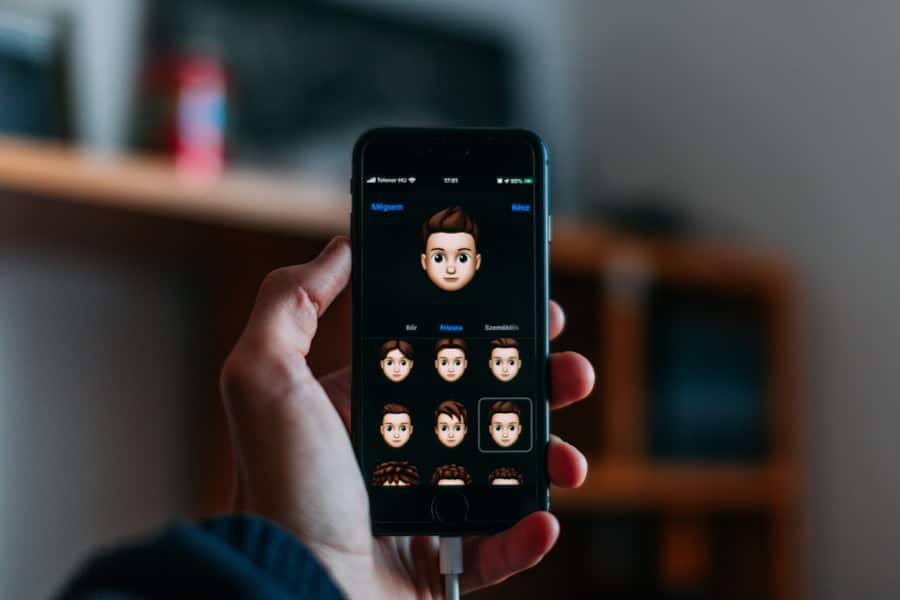In recent years, the proliferation of artificial intelligence (AI) has significantly transformed various sectors, and mental health care is no exception. The rise of AI-powered devices has ushered in a new era of mental health monitoring, enabling individuals to track their emotional well-being with unprecedented accuracy and convenience. These devices range from smartphone applications that utilize machine learning algorithms to wearable technology that monitors physiological indicators such as heart rate variability and sleep patterns.
The integration of AI into these tools allows for real-time data analysis, providing users with insights into their mental health status and potential triggers for distress. The increasing prevalence of mental health issues globally has necessitated innovative solutions to address the growing demand for accessible and effective care. According to the World Health Organization, approximately one in four individuals will experience a mental health disorder at some point in their lives.
Traditional methods of monitoring and treatment often fall short due to stigma, lack of resources, and the high cost of therapy. AI-powered devices offer a promising alternative by providing users with immediate feedback and personalized recommendations based on their unique data profiles. This shift not only empowers individuals to take charge of their mental health but also fosters a proactive approach to managing emotional well-being.
Key Takeaways
- AI-powered devices are increasingly being used for mental health monitoring, offering new opportunities for early detection and intervention.
- AI plays a crucial role in identifying patterns and warning signs of mental health issues, enabling timely intervention and support.
- AI-powered devices have the potential to improve access to mental health care, particularly for underserved populations and in remote areas.
- Ethical considerations, such as data privacy and potential biases in AI algorithms, must be carefully addressed in the use of AI for mental health monitoring.
- Integrating AI-powered devices with traditional mental health care can enhance the overall quality and effectiveness of mental health services.
The Role of AI in Early Detection and Intervention for Mental Health Issues
AI’s capacity for early detection and intervention in mental health issues is one of its most compelling advantages. By analyzing vast amounts of data from various sources, including social media activity, text messages, and biometric data, AI algorithms can identify patterns indicative of mental health deterioration. For instance, researchers have developed machine learning models that can predict depressive episodes by analyzing changes in language use on social media platforms.
Such predictive capabilities enable timely interventions, allowing individuals to seek help before their conditions worsen. Moreover, AI can facilitate personalized interventions tailored to the specific needs of individuals. For example, chatbots powered by natural language processing can engage users in therapeutic conversations, providing immediate support and coping strategies.
The ability to intervene early not only improves individual outcomes but also reduces the overall burden on mental health services, making care more efficient and effective.
The Potential Impact of AI-Powered Devices on Access to Mental Health Care

One of the most significant impacts of AI-powered devices is their potential to enhance access to mental health care. Geographic barriers often limit individuals’ ability to seek help, particularly in rural or underserved areas where mental health professionals may be scarce. AI-powered tools can democratize access by providing remote monitoring and support, allowing users to engage with their mental health care from the comfort of their homes.
This accessibility is particularly crucial during times of crisis, such as the COVID-19 pandemic, when many individuals faced increased anxiety and isolation. Furthermore, the cost-effectiveness of AI-powered devices can make mental health care more affordable for a broader population. Traditional therapy sessions can be prohibitively expensive, often deterring individuals from seeking help.
In contrast, many AI-driven applications offer free or low-cost services that can provide valuable support without the financial burden associated with conventional therapy. By lowering these barriers, AI-powered devices can encourage more individuals to prioritize their mental health and seek assistance when needed.
Ethical Considerations in the Use of AI for Mental Health Monitoring
While the benefits of AI in mental health monitoring are substantial, ethical considerations must be addressed to ensure responsible implementation. One primary concern is the potential for bias in AI algorithms, which can lead to unequal treatment outcomes for different demographic groups. If the data used to train these algorithms is not representative of diverse populations, there is a risk that certain groups may receive less accurate assessments or recommendations.
This issue underscores the importance of developing inclusive datasets that reflect the varied experiences and needs of all individuals. Additionally, the use of AI in mental health monitoring raises questions about informed consent and user autonomy. Individuals must be fully aware of how their data will be used and the implications of sharing sensitive information with AI systems.
Transparency in data collection practices is essential to build trust between users and technology providers. Furthermore, ethical frameworks must be established to guide the development and deployment of AI tools in mental health care, ensuring that they prioritize user well-being and uphold principles of fairness and accountability.
The Integration of AI-Powered Devices with Traditional Mental Health Care
The integration of AI-powered devices with traditional mental health care represents a promising avenue for enhancing treatment efficacy. Rather than replacing human therapists, these technologies can complement existing therapeutic practices by providing additional data and insights that inform treatment plans. For instance, therapists can utilize data collected from wearable devices to gain a deeper understanding of their clients’ daily emotional fluctuations and stressors.
This holistic view can lead to more tailored interventions that address specific challenges faced by individuals. Moreover, AI-powered tools can facilitate communication between patients and providers, streamlining the therapeutic process. For example, some applications allow users to share their mood tracking data directly with their therapists, enabling real-time adjustments to treatment strategies based on observed patterns.
This collaborative approach fosters a stronger therapeutic alliance and empowers clients to take an active role in their recovery journey. By bridging the gap between technology and traditional care, AI has the potential to create a more integrated and effective mental health care system.
The Challenges and Limitations of AI-Powered Mental Health Monitoring

Despite the promising advancements in AI-powered mental health monitoring, several challenges and limitations persist that must be addressed for widespread adoption. One significant challenge is the variability in individual responses to technology-based interventions. While some users may find AI tools beneficial, others may experience discomfort or skepticism regarding their effectiveness.
Additionally, the reliance on self-reported data poses inherent limitations in accuracy and reliability. Users may not always provide honest or complete information about their mental health status due to stigma or fear of judgment.
This discrepancy can lead to skewed data interpretations by AI algorithms, ultimately affecting the quality of insights generated. To mitigate these challenges, ongoing research is needed to refine AI models and enhance user engagement strategies that promote honest self-disclosure.
The Future of AI-Powered Devices in Mental Health Monitoring
Looking ahead, the future of AI-powered devices in mental health monitoring appears promising yet complex. As technology continues to evolve, we can expect advancements in machine learning algorithms that enhance predictive accuracy and personalization capabilities. Future devices may incorporate multimodal data sources—such as voice analysis or facial recognition—to provide even more nuanced insights into an individual’s emotional state.
Such innovations could revolutionize how we understand and respond to mental health challenges. Moreover, as public awareness of mental health issues grows, there is likely to be increased demand for accessible solutions that integrate seamlessly into daily life. This trend may drive further investment in research and development for AI-powered tools designed specifically for mental health monitoring.
Collaboration between technologists, clinicians, and researchers will be essential in shaping these innovations to ensure they meet the diverse needs of users while adhering to ethical standards.
The Importance of User Privacy and Data Security in AI-Powered Mental Health Monitoring
As with any technology that collects sensitive personal information, user privacy and data security are paramount concerns in the realm of AI-powered mental health monitoring. Individuals must feel confident that their data is being handled responsibly and securely; otherwise, they may be reluctant to engage with these tools fully. Implementing robust encryption protocols and transparent data management practices is essential for safeguarding user information against breaches or unauthorized access.
Furthermore, organizations developing AI-powered mental health tools must prioritize user consent and control over their data. Users should have clear options regarding what information they share and how it is utilized within the system. Empowering individuals with agency over their data not only fosters trust but also aligns with ethical principles surrounding autonomy and informed consent.
As the landscape of digital mental health care continues to evolve, prioritizing privacy and security will be crucial in ensuring that users feel safe and supported throughout their journey toward improved mental well-being.
A related article to “How AI-Powered Devices Are Transforming Mental Health Monitoring” can be found on Wired.com, which focuses on how emerging technologies are shaping various aspects of our lives. The article discusses the impact of AI on mental health monitoring and highlights the potential benefits and challenges of using these advanced technologies in healthcare. To learn more about the latest trends in emerging technologies, you can check out the article here.
FAQs
What are AI-powered devices?
AI-powered devices are electronic devices that utilize artificial intelligence (AI) to perform tasks that typically require human intelligence, such as learning, problem-solving, and decision-making.
How are AI-powered devices transforming mental health monitoring?
AI-powered devices are transforming mental health monitoring by providing continuous, real-time monitoring of an individual’s mental health status. These devices can analyze patterns in behavior, speech, and other data to detect changes in mental health and provide early intervention or support.
What are some examples of AI-powered devices used in mental health monitoring?
Examples of AI-powered devices used in mental health monitoring include wearable devices that track physiological and behavioral data, smartphone apps that analyze speech patterns and communication, and virtual assistants that provide mental health support and resources.
What are the benefits of using AI-powered devices for mental health monitoring?
The benefits of using AI-powered devices for mental health monitoring include early detection of mental health issues, personalized and targeted interventions, continuous monitoring and support, and reduced stigma associated with seeking mental health care.
Are there any concerns or limitations associated with AI-powered devices in mental health monitoring?
Some concerns and limitations associated with AI-powered devices in mental health monitoring include privacy and data security issues, potential biases in AI algorithms, and the need for human oversight and interpretation of the data collected by these devices.

